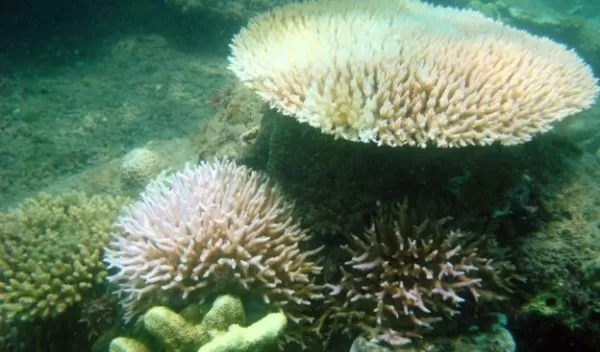
Corals in murky waters less affected by temperature stress
Persistent temperature stress is degrading coral reefs worldwide, but a new study by Florida Institute of Technology scientists has found that corals in naturally turbid waters are less affected by thermal stress than corals in clearer water.
The National Science Foundation-funded findings by researchers Shannon Sully and Rob van Woesik were published in the journal Global Change Biology.
"We hypothesized that reduced light on turbid reefs would reduce coral stress during thermal stress events, and our research verified that," Sully said.
The co-authors examined coral bleaching severity on a global scale and found that bleaching was indeed reduced during temperature stress events when turbidity was naturally elevated, although excess turbidity also harmed the reef.
"We found that about 12% of the world's reefs exist within this 'moderating turbidity' range," Sully said. van Woesik said that the analyses could provide a new direction for marine policy.
"As climate change continues to threaten coral reefs globally, it is imperative to know locations where corals are likely to survive through thermal stress events," van Woesik said. "This information will help plan for change by focusing conservation on nearshore coral reefs in turbid waters."
The scientists suggested that nearshore turbid reefs will need a particularly high conservation status not only because they act as modern climate change refuges and are repositories of ecological diversity, but because they are close to human settlements.
"People have long considered clear-water coral reefs as the ultimate reefs worth preserving," van Woesik said. "But as we move into a warmer world, we need to adapt our conservation policies and understand that turbid nearshore environments, although less charismatic, may provide refuge from climate change-caused thermal stress."
Added Dan Thornhill, a program director in NSF's Division of Ocean Sciences, "This research demonstrates what we've long suspected: that bleaching is a combination of temperature and light stress. Corals in moderately turbid waters are less exposed to intense light and the UV of tropical sunlight, and therefore are more resilient to bleaching."


